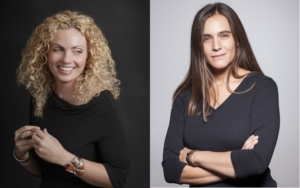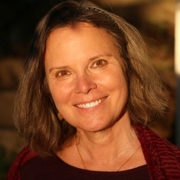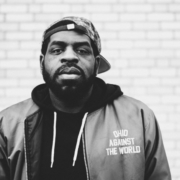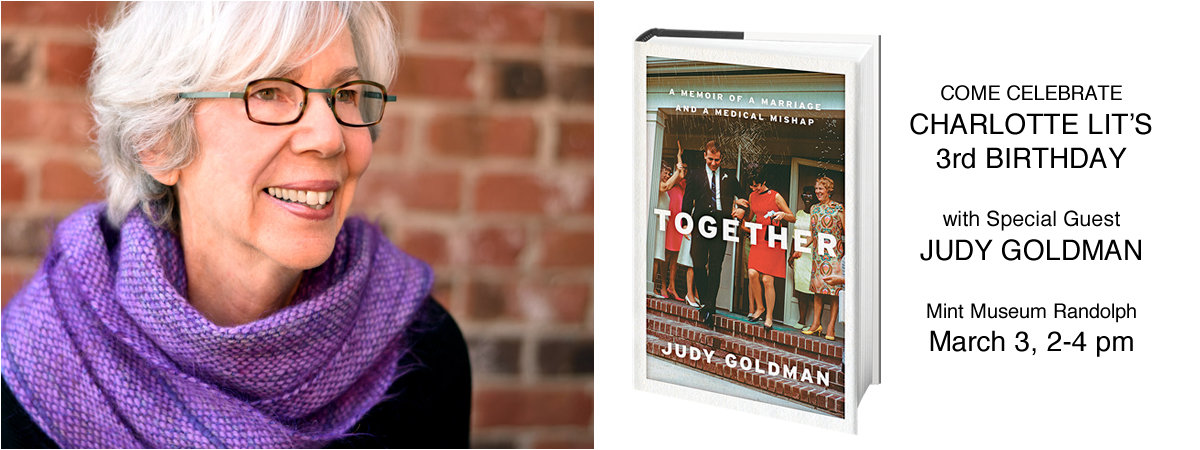September 4X4CLT Featured Poet: Jennifer Chang
Charlotte Lit’s programming year kicks off with the release of the September edition of 4X4CLT poetry + art poster series on Friday September 6. We’re celebrating at The Light Factory from 6:30 to 8:30 pm. This series features poems from Jennifer Chang paired with paintings from Tom Thoune and photography from Cordelia Williams. At this event, which is free and open to the public, Chang will read her poetry and Williams will speak about her art.
Jennifer Chang, the featured poet for September 4X4CLT, is the author of two books of poetry, The History of Anonymity and Some Say the Lark. Lovers of poetry may have seen her work in The New Yorker, The New York Times, American Poetry Review, and other national publications. She co-chairs the advisory board of Kundiman, an organization that works to nurture Asian American literature. She teaches at George Washington University and the low-residency MFA writing program at Bennington College.
I can’t say for sure which of her poems I first encountered, but two that fully captured my attention might be called a pastoral and an anti-pastoral. The first, actually titled “Pastoral,” comes from Chang’s debut, The History of Anonymity. The collection is full of fairytale and describes a place where nature is beguiling and unknowable. In “Pastoral,” the speaker observes a field she perceives to be full of mysterious activity that she does her best to describe: “Something in the field is / working away. Root-noise. / Twig-noise. Plant / of weak chlorophyll, no / name for it.” But whatever is “working away” feints from focus and sure definition: “Has it roar and bloom? / Has it road and follow?” Yes, there is a field, fences, and meadow flowers, but this pastoral is no shepherd’s idyll. What it is and what it’s doing, exactly, remains in question.
“Dorothy Wordsworth,” from Chang’s 2017 collection Some Say the Lark, keeps the trappings of a traditional ode to springtime but splices it with a rage-induced rant. Of daffodils, the speaker says: “I’m tired of their crowds, yellow rantings / about the spastic sun that shines and shines / and shines. How are they any different / from me? I, too, have a big messy head / on a fragile stalk. I spin with the wind. / I flower and don’t apologize.” The spring season is now “the dark plot / of future growing things” where the usual tropes are upended. The poem dispatches the flowers’ “boring beauty” and ex-boyfriends with equal disdain. Of this collection of poems, Natasha Trethewey says “Some Say the Lark is a piercing meditation, rooted in loss and longing, and manifest in dazzling leaps of the imagination—the familiar world rendered strange.” Chang’s poems tend toward the lyrical with swerves and dashes of narrative.
On Saturday September 7 from 9:30 am to noon, Chang teaches a master class at Charlotte Lit, “On Fragments.” Participants will look at how “brokenness, irresolution, brevity, and rupture are integral to meaning” and how fragments operate as poetic form. We hope you’ll join us in welcoming Jennifer Chang to Charlotte and look for her gorgeous, lyrical poems on the 4X4CLT posters all over Charlotte in the next few months.
Lisa Zerkle is an award-winning poet and the curator of Charlotte Lit’s 4X4CLT.

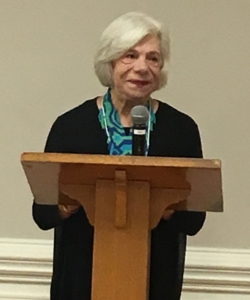 Beginning in 1977 the NC Writers Conference’s final act has been a banquet honoring a writer of high esteem like Reynolds Price, Fred Chappell, John Ehle, Shelby Stephenson, James Applewhite, Tony Abbott, Ruth Moose, Robert Morgan, Kathryn Stripling Byer and others.
Beginning in 1977 the NC Writers Conference’s final act has been a banquet honoring a writer of high esteem like Reynolds Price, Fred Chappell, John Ehle, Shelby Stephenson, James Applewhite, Tony Abbott, Ruth Moose, Robert Morgan, Kathryn Stripling Byer and others.